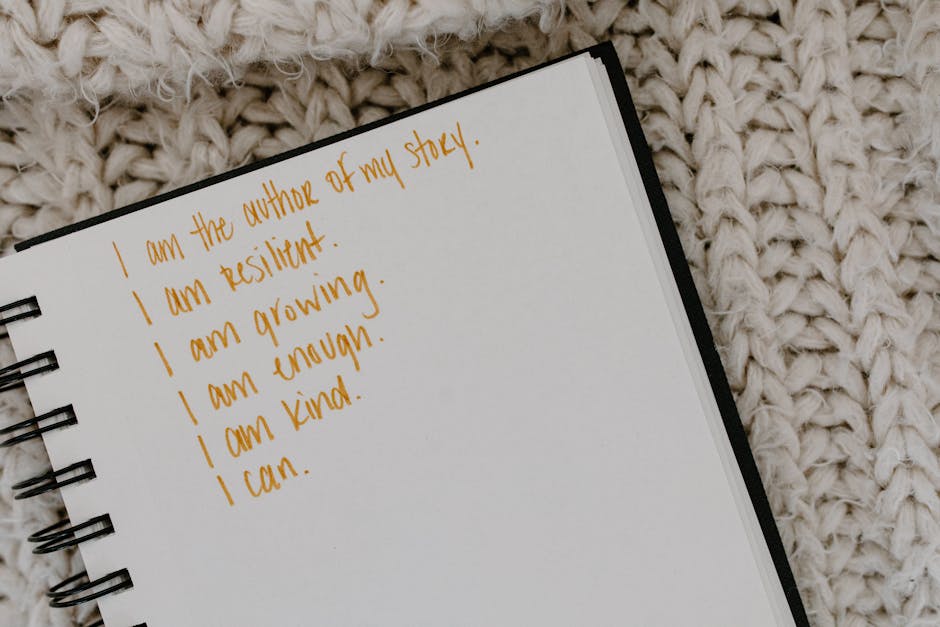Journaling Prompts for Self-Reflection: Inspire Your Inner Voice and Creativity
Journaling can be a powerful tool for self-discovery and creativity, acting as a mirror to reflect your thoughts and emotions. Think of it as having a conversation with yourself, where the paper listens without judgment. But sometimes, staring at a blank page can feel intimidating. That’s where journaling prompts come in, they nudge your mind in new directions, sparking ideas you may not have considered.
The Magic of a Good Prompt
Imagine your mind is like a garden.

Without seeds (ideas) and care (reflection), it’s hard for anything meaningful to grow. Journaling prompts act as those seeds, giving structure to your thoughts and encouraging deeper introspection. Even the simplest question, like “What made me smile today?”, can lead you down a path of insight.
Someone might use the prompt “What was the last thing I felt truly proud of?” It could remind them of a small yet significant accomplishment, like helping a friend through a tough time or mastering a new skill. This reflection boosts self-awareness and builds confidence over time.
Daily Reflection Prompts
If you’re unsure where to begin, daily reflection prompts are an excellent starting point. They focus on your immediate experiences and emotions, offering clarity about your day-to-day life. Here are some examples:
- What energized me today? This question helps pinpoint activities or interactions that uplifted you, encouraging more of them in the future.
- What drained my energy today? Identifying these moments allows you to address patterns that might be causing stress or exhaustion.
- If I could change one thing about today, what would it be? This prompt invites constructive thinking without dwelling on regrets.
Try answering these prompts consistently for a week. You might notice recurring themes that reveal more about what brings balance (or imbalance) to your life.
Prompts to Unlock Creativity
Creativity thrives when we give our minds permission to wander freely. Prompts designed for imaginative thinking can help break free from rigid thought patterns. Here are some fun ideas:
- If I had no fear of failure, what would I do? This question challenges the boundaries you’ve unconsciously set for yourself.
- Describe an alternate version of your life five years from now. Paint a vivid picture, where are you living? What are you doing? Who’s with you?
- If my favorite book character came to life, what advice would they give me? Combining fiction with reality can bring surprising insights.
A friend of mine once used the alternate-life prompt and ended up writing an entire short story based on her imagined future self. It wasn’t just an exercise in creativity, it also clarified her real-life goals and dreams.
Digging Deeper: Prompts for Self-Discovery
If you’re ready for more profound reflection, consider prompts that challenge your perspectives or dig into long-held beliefs. These might require more time and emotional energy but can yield transformative insights:
- What’s a belief I hold that no longer serves me? Examining this can help you let go of outdated ideas holding you back.
- What is one moment from my past I’d like to revisit? Why? Revisiting past experiences often reveals hidden lessons or emotions worth unpacking.
- If I met my younger self, what would I tell them? This is an opportunity to show yourself compassion and acknowledge growth over time.
A research study published by Cambridge University Press highlights how reflective writing promotes emotional processing and healing after significant life events (Cambridge.org). Using prompts like these can serve as therapeutic tools for navigating complex emotions.
Tips for Making Journaling Stick
Here are some practical tips:
- Create a Ritual: Set aside five minutes every morning or evening as dedicated journaling time. Pair it with another habit, like drinking coffee or winding down before bed.
- Let Go of Perfection: Your journal isn’t meant to be a masterpiece; it’s just for you. Write messy sentences if that’s what feels natural, this is about honesty, not grammar.
- Keep It Accessible: Whether it’s a physical notebook or an app on your phone, having your journal within reach makes sticking with the habit easier.
A small notebook tucked into your bag or nightstand works wonders for capturing thoughts on the go. Alternatively, apps like Day One (DayOneApp.com) provide digital options for tracking entries along with photos or voice recordings.
The Beauty of Your Inner Voice
Your journal is one of the few places where your inner voice can truly speak freely, without interruption or judgment. Over time, responding to prompts becomes less about filling pages and more about understanding yourself better. Whether you're sorting through complex emotions or brainstorming creative projects, these guided reflections offer both clarity and inspiration.
The next time you find yourself staring at a blank page, remember this: there’s no wrong way to write in your journal. Pick one prompt from this list (or make up your own) and let your pen (or keyboard) guide you wherever it wants to go. You might just surprise yourself with what comes out.
